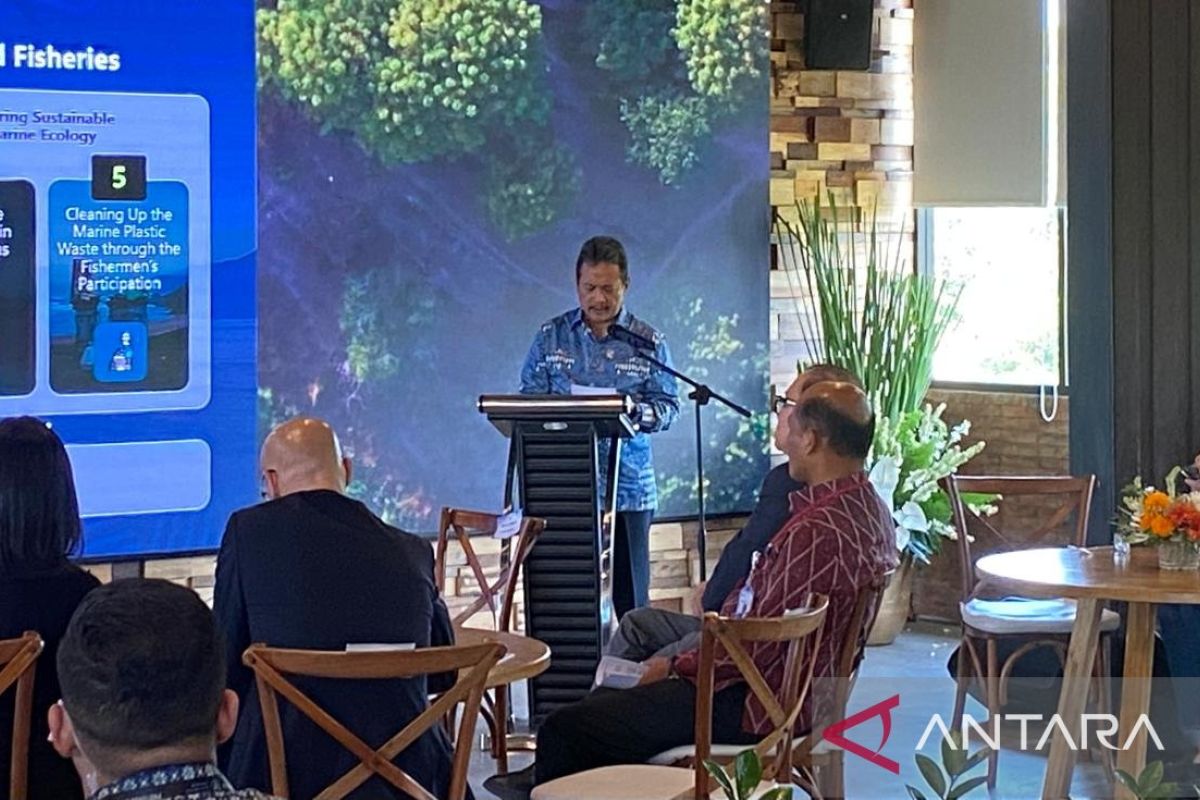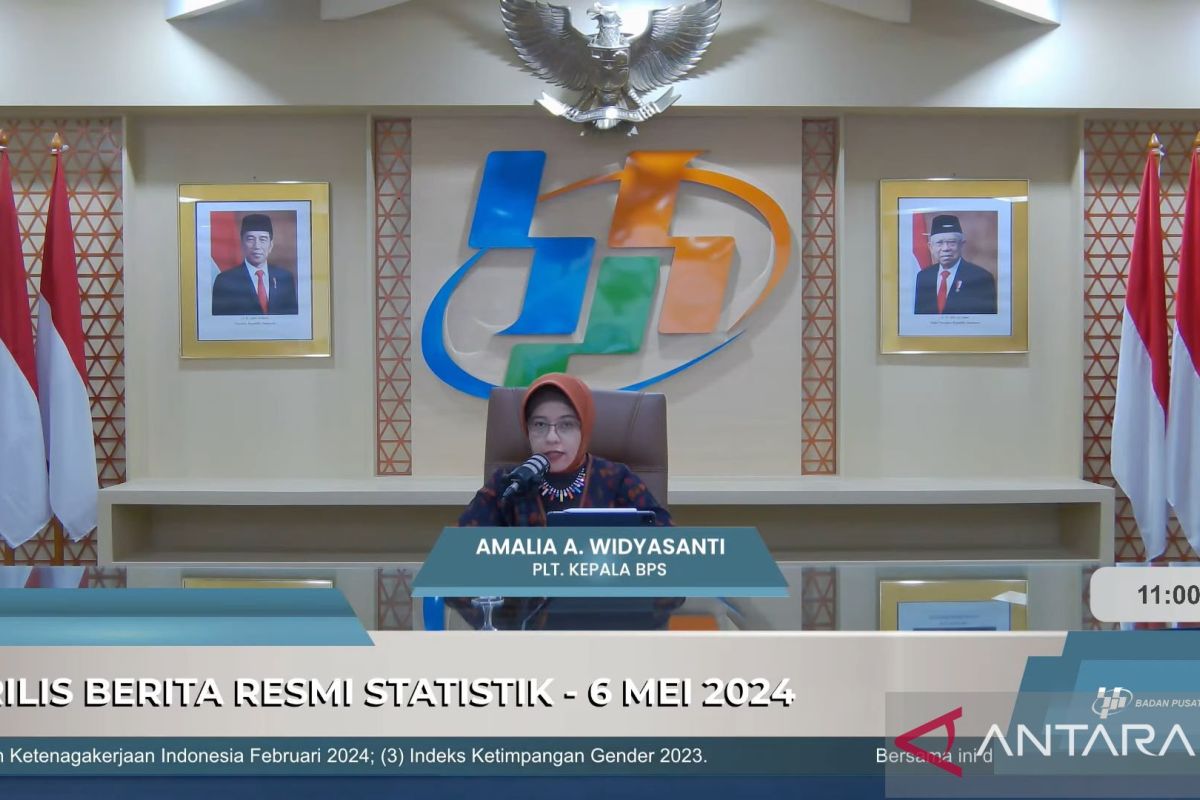Acting Head of BPS Amalia Adininggar Widyasanti stated that the decline in Indonesia’s IKG in 2023 is a continuum of the improvements achieved since 2019.
“The Indonesian Gender Inequality Index value is 0.447, down 0.012 points as compared to 2022,” Widyasanti stated in a press conference in Jakarta on Monday.
Although the decline of 0.012 points in 2023 is slightly smaller than the decrease in IKG in 2020, which was 0.016 points, over the last five years, Indonesia’s IKG has consistently decreased with each passing year.
According to Widyasanti, the data shows that gender equality in Indonesia continues to increase.
Since 2018, Indonesia’s IKG has decreased by 0.010 points annually, thereby bringing the total to 0.052 points over the last five years.
Widyasanti explained that the decline in Indonesia’s IKG in 2023 was influenced by improvements in all indicators in all three dimensions, especially the one related to labor market.
The female labor force participation rate increased, from 53.41 percent in 2022 to 54.52 percent in 2023, while the male labor force participation rate rose, from 83.87 percent in 2022 to 84.26 percent in 2023.
Indonesia’s IKG has shown consistent improvement in its three constituent dimensions.
In the reproductive health dimension, an improvement has been observed in terms of the successful minimization of potential risks to women’s reproductive health in Indonesia.
Indicators of the reproductive health dimension in 2023 experienced a decline as compared to 2022. In 2023, the MTF reached 0.126, a slight decrease as compared to 0.140 in 2022.
MHPK20 decreased by 0.007 points from the previous year to 0.258.
MTF is the proportion of ever-married women, aged 14-49 years, who did not give birth in a health facility. Meanwhile, MHPK20 is the proportion of ever-married women in the age bracket of 15-49 years whose first live birth occurred when they were less than 20 years old.
Furthermore, in terms of the empowerment dimension, in 2023, the number of female parliamentarians had increased by 0.40 percentage points, from 22.14 percent in the previous year. On the other hand, the number of male parliament members decreased to 77.86 percent.
According to Widyasanti, the condition reflects that the roles of men and women in policy making have become more equal than before.
The last dimension of the IKG is the labor market dimension represented by the Labor Force Participation Level (TPAK) indicator for both genders, men and women.
TPAK for men reached 84.26 percent in 2023, an increase of 0.39 percentage points from the previous year. Conversely, women’s TPAK increased by 1.11 percentage points, from 53.41 percent in 2022 to 54.52 percent in 2023.
The higher increase in TPAK for women as compared to men indicated that the opportunities for both genders to enter the job market are becoming more equal.
Moreover, women’s TPAK shows a relatively moderate trend as compared to that of their male counterparts that tended to be more volatile in the 2018-2023 period.
Widyasanti underscored the importance of paying attention to the state of gender inequality in all regions. In general, Indonesia’s IKG in 2023 had recorded an improvement in most provinces in Indonesia.
In total, 28 out of the 34 provinces experienced a decrease in 2023.
On the other hand, five provinces that recorded an increase in IKG, were Central Kalimantan, with the highest rise of 0.015 points, followed by North Kalimantan,0.008; Papua, 0.003; West Nusa Tenggara, 0.002; and Southeast Sulawesi, 0.001.
West Papua was the only region that did not register changes to the IKG. Meanwhile, the most significant decline occurred in Yogyakarta, with a drop of 0.098 points, followed by Bali, 0.082, and Jakarta, 0.064.
“Changes in the IKG in these provinces emphasize the overall situation of gender inequality that is also the lowest among other provinces in Indonesia,” she concluded.
Related news: Women’s empowerment solution to reducing child labor, marriages
Related news: Need to empower women, help them reach their potential: minister
Translator: Bayu Saputra, Cindy Frishanti Octavia
Editor: Rahmad Nasution
Copyright © ANTARA 2024






More Stories
Unified coastal ecosystem for water conservation: Minister
3 killed in small plane crash near Indonesia's capital
Govt calls for increase in awareness about immunization benefits